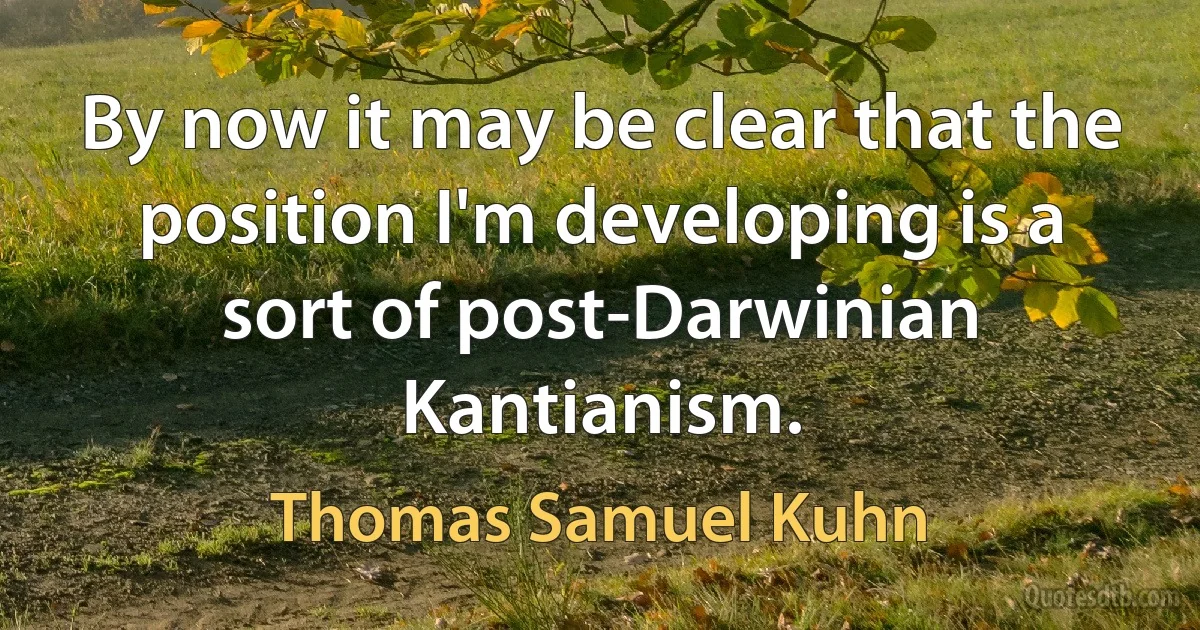Kantianism Quotes
And therefore we can see just how constructive this Spinozian difference is, just how constructive this negativity really is! The organic interweaving of these two motifs is fundamental in the history of European philosophy. Spinoza is the first to mold this logical mechanism that bourgeois philosophy would constantly and continually try to abrogate during its subsequent development. In Kantianism, as in classical idealism, Spinoza continually remains the object of opposition and polemic: What is destroyed is precisely the intersection between the negation of the ideology and the construction of the world, the inherence of the limit, of the materiality, to the infinite.

Baruch Spinoza
Some forms of Kantianism put great weight on "what we can imagine” holding that this can be a source of insight into necessary connections. Thus various of Kant's arguments about space and time depend on the purported fact that it is impossible for us to imagine certain things: we can know, Kant claims, a priori that space has only three dimensions because we cannot imagine it as having more than three dimensions. History in the form of non-Euclidean geometry and modern physics has put paid to that particular line of argument, but in general we should beware of depending too much on "What we can imagine?,” especially in politics. As Nietzsche puts it somewhere, sometimes the fact that you can't imagine a situation in which things are very different from the way they are now is not an especially good argument for the claim that they must be as they now are, but, rather, represents a failure of your powers about which you should feel mildly apologetic.

Raymond Geuss
In its origin, liberalism had no ambition to be universal either in the sense of claiming to be valid for everyone and every human society or in the sense of purporting to give an answer to all the important questions of human life. ... The ideal of liberalism is a practically engaged political philosophy that is both epistemically and morally highly abstemious. That is, at best, a very difficult and possibly a completely hopeless project. It is therefore not surprising that liberals succumb again and again to the temptation to go beyond the limits they would ideally like to set for themselves and try to make of liberalism a complete philosophy of life. ... In the middle of the twentieth century, Kantianism presented itself as a "philosophical foundation” for a version of liberalism, and liberals at that time were sufficiently weak and self-deceived (or strong and opportunistic) to accept the offer.

Raymond Geuss
To be "reasonable” means to put oneself into a special, rarely happy relation to the sensuous. "Be reasonable” means, practically speaking, do not trust your impulses, do not listen to your body, learn control, starting with your own sensuousness. But intellect and sensuousness are inseparable. Torless's outbreak of sweating after two pages of the Critique of Pure Reason contains as much truth as the whole of Kantianism. The understood mutual interaction of physis and logos is philosophy, not what is spoken.

Peter Sloterdijk

